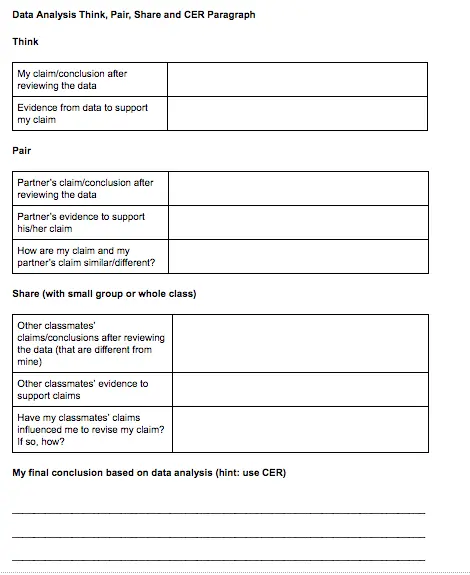A conversation between John Wesley Pope, a first-year teacher at Washington County High School and Valerie Librizzi, his BetterLesson coach.
Wesley Pope teaches Agriculture at Washington County High School in Sandersville, Georgia. Valerie Librizzi is a BetterLesson instructional coach based in New Jersey. Wesley and Valerie have never met in person, and instead meet every two weeks for a half an hour using Zoom, a video-conference platform similar to Skype.
In their first meeting, Wesley shared his challenge: how to align his agriculture curriculum to his school district’s focus on building students’ literacy skills across the content areas. The pair made this challenge Wesley’s goal for the year and immediately started exploring and developing reading, writing, and speaking strategies he could try in his agriculture classes to achieve his goal. In each meeting, Wesley would share evidence of his students’ progress, and through reflecting on his students’ progress, the pair would develop next steps for him to take in order to achieve his goal.
Here are five key takeaways that Wesley learned from the coaching work, which has resulted in building his students’ literacy skills in his agriculture classes.
My virtual coach helped me to differentiate students’ reading tasks to better personalize their learning paths.
One of the things I’ve struggled with is finding texts that align to my curriculum that are challenging, yet differentiated so that they could meet the diverse skills of my students who are in different grades and read at different levels. I also wanted to be able to measure my students’ reading skills to assess their progress in building their literacy skills. My coach Valerie showed me some Newsela reading sets that were both challenging and that could be sorted by lexile level. I also found that several articles on topics such as aquaponics aligned closely to the work I would be doing with my agriculture students. From there, we talked about strategies my students could use to identify an author’s claim in an agriculture text and then develop their own point of view on the issue using evidence from the text. My students then practiced these skills using the Newsela text sets.
My virtual coach helped me expand my “teaching toolbox” by introducing me to paragraph frames.
In the beginning of the year, my students were writing summary paragraphs of articles they were reading, but I wanted to help them strengthen their writing skills so that they could better analyze a text and form opinions on what they were reading as well. I just wasn’t sure how to do that. My biggest ‘Ah ha’ moment with Valerie this year was when she shared with me the CER (Claim, Evidence, Reasoning) paragraph frame. It was so simple, but so effective!
Once my students demonstrated that they were successful with the CER paragraph frame, we built other frames for my students to use– a frame for how to write an introductory paragraph, counterclaim paragraph, and a conclusion paragraphs so that step by step, we guided my students toward writing an argumentative essay.
My virtual coach helped me teach my students how to find evidence in a text to support their claim.
When Valerie and I started looking at my students’ writing together, we realized that they were able to develop claims, but often struggled to find strong evidence to support those claims. We decided to support my students to use evidence to support their claims through speaking first and then writing. My students engaged in a Socratic Seminar discussion about a controversial film they recently analyzed, and I asked that they use evidence to support their points of view during the discussion. The students took notes during this discussion and these notes provided a lot of evidence for them to use in their upcoming argumentative essay on the same topic.
My virtual coach helped me show my students how to provide meaningful feedback on their peers’ claims.
Valerie shared with me the acronym SODA to help students evaluate a claim. In order for a claim to be strong it must be Specific, Original, Defensible, and Arguable. My students engaged in a peer editing circle to evaluate each other’s claims using SODA.
My virtual coach is helping me teach my students how to analyze data in order to develop and support a claim.

Now that my students are successful in using textual evidence to support a claim, Valerie and I are working on building my students’ skills in using data to develop and support their claims. Before my next meeting with Valerie, my students will analyze data about different fertilizers in order to determine which fertilizer is best for a particular crop. To support their data analysis, Valerie and and I built a note-taking sheet for my students to use as they engage in a Think-Pair-Share which will help to build and revise their claims.
I have learned a lot over the past nine months with Valerie as my BetterLesson Coach and have become a more confident and more skilled teacher as a result. Being the only agriculture teacher in my school can be tough. I do not have another teacher to bounce ideas off of and plan lessons with. Having Valerie to collaborate with has helped me tremendously, and her knowledge of strategies breathed “new life” into my lessons.
The thing I like most is the personal approach that my coach took to get to know me and my students in order to improve the instruction in my classroom. Valerie was not assertive when it came to introducing new strategies for my students. Instead, she wanted me to be comfortable with new strategies and tools before presenting them to the class so we talked through them together.
I could not have asked for a better virtual coach then Valerie and BetterLesson. As a first-year teacher I am more confident in the content I cover and the strategies I will use to teach it.







